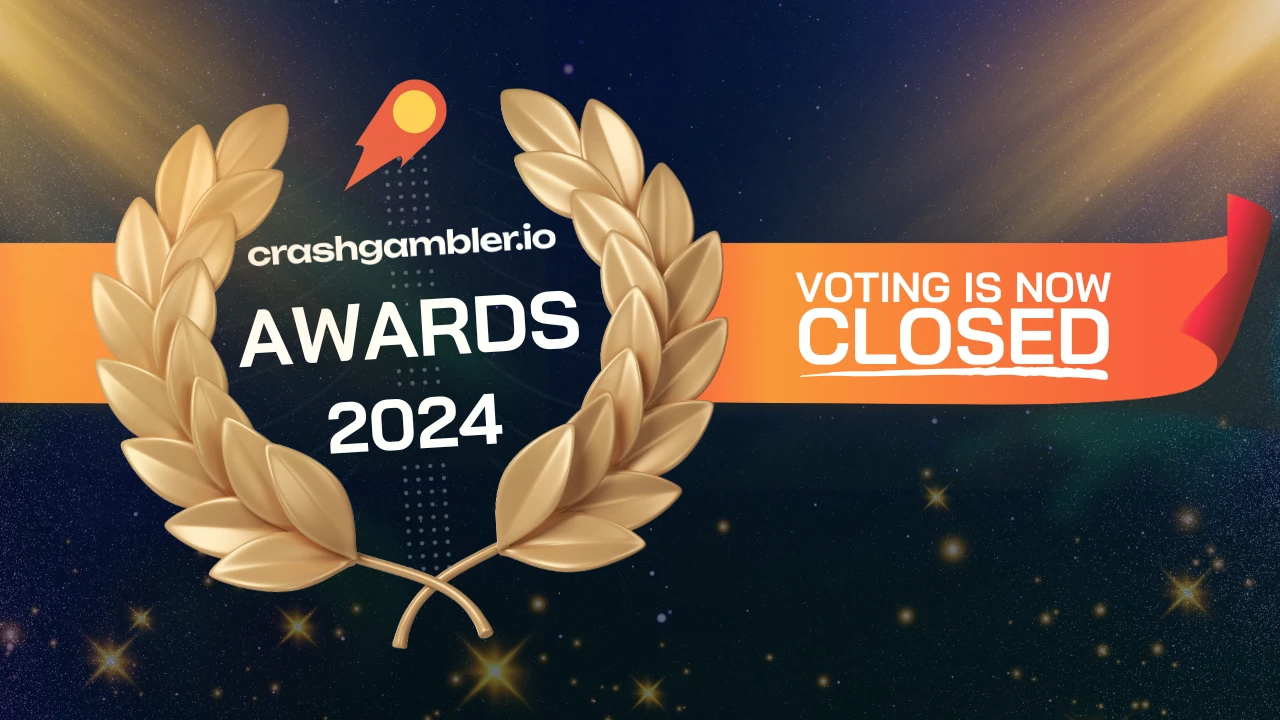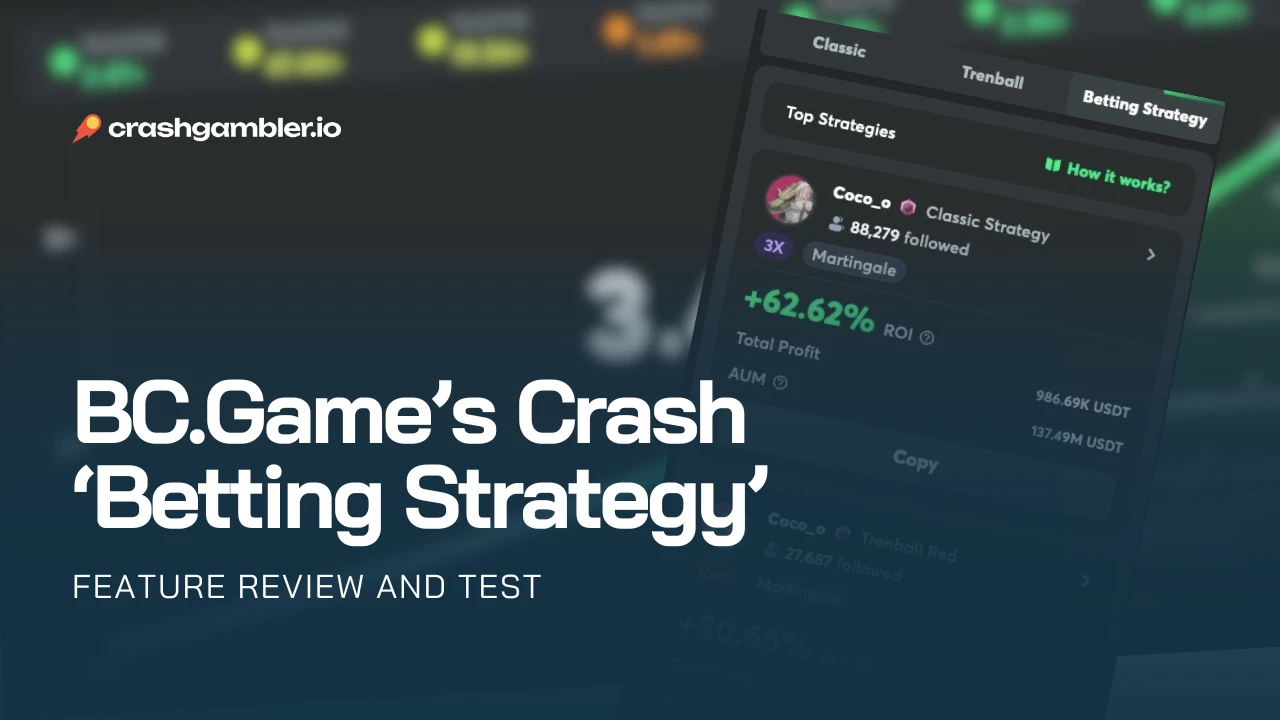Responsible Gambling
We’re living in a world where casino games (crash included) are designed to pull players in and keep them entertained for hours. Because of this, the importance of responsible gambling has reached critical levels.
💡 Understanding responsible gambling, practicing it and being able to recognize signs of problematic gambling is essential!
In this guide, we’ll touch upon all of the before-mentioned topics, but most importantly, we’ll share with you some of the best resources that allow us to keep playing without experiencing a negative impact on our lives.
What is Responsible Gambling?
According to the Association of Certified Gaming Compliance Specialists (ACGCS), responsible gambling is a practice of gambling which minimalizes the potential negative effects of gambling on individuals and society. Practicing responsible gambling includes recognizing and managing the risk that gambling carries.
When we talk about responsible gambling, we always say that gambling is and should be a social activity. You should do it for entertainment and fun.
Jennifer Shatley, President of the Nevada Council on Problem Gambling
Responsible Gambling Council, an organization dedicated to the well-being of gamblers in Canada, defines responsible gambling as gambling that minimizes the risk to players through the use of safeguards, which include money and time limits, not seeing gambling as a way of making money, and never borrowing money to gamble.
How to Play Crash Responsibly
If you ever read any of the content here on Crash Gambler, you’ll see that at the very end, we always remind you to gamble responsibly and have fun. It’s time we actually provide you with some guidelines on how to gamble responsibly when playing your favourite crash games.
According to the guidelines from EPCG (Evergreen Council on Problem Gambling), you can gamble responsibly by:
- Setting strict time limits before you start gambling and sticking to them
- Setting a limited budget before you start gambling and sticking to it
- Consider gambling an entertainment expense, just like seeing a movie at the cinema. Remember, you should only gamble for fun!
- Accepting losses as part of the journey, after all, you’re playing a game, so losses are to be expected.
- Never borrowing money for gambling, not even from yourself. Only gamble with the money you’ve set aside from gambling, and you can afford to lose. Do not tap into your savings.
- Not letting gambling interfere with your family, work or social life.
- Not gambling to win back losses. It won’t work, it’s a common misconception.
- Not gambling to make a living. Remember, it should be just for fun!
- Not using gambling as a way to self-medicate from emotional or physical pain.
These are general guidelines for responsible gambling, and even though they are not specific to crash gambling, they remain relevant for every type of gambling. One organization we like to mention in our content is GambleAware.
In addition to the guidelines above, GambleAware also recommends that you never mix gambling with alcohol or drugs.
GambleAware also recommends that you pay close attention to your feeling when gambling. They suggest you don’t make gambling your go-to activity and that you take a lot of breaks when playing.
Recognizing Signs of Compulsive Gambling
Since it’s in our best interest to see you, fellow crash gamblers, happy and healthy, we want you to pay close attention to the contents of this section. However, as you’ll learn, it’s vital that you pay attention to yourself first.
According to Mayo Clinic, signs and symptoms of compulsive gambling include:
- Being preoccupied with gambling. This includes constantly planning gambling activities and how you’ll make money only to gamble it away later.
- Not being honest about the extent of your gambling to your friends and family.
- Chasing losses is something you do to recover lost money.
- Gambling to escape your feelings and problems.
- Placing bigger and bigger bets. Small bets don’t cut it anymore. In order to enjoy the thrill, you need to bet big.
- Your attempts at cutting out or stopping gambling are futile.
- You ask your circle to lend you money so you can gamble or afford daily necessities.
- You’re putting your relationships, work or education at risk because of gambling.
Responsible Gambling Council prepared a simple questionnaire for every gambler, which allows you to determine whether you are a safe gambler or not.
Are you a safe gambler?
- Do you consider gambling just one of many recreational activities you pursue?
- Do your bets stay within the limits of what you can afford? Are they reasonable and calculated?
- Do you find it easy to stop gambling?
- Do you realize that winning can be fun, but it isn’t everything?
- Do you recognize that losing can be disappointing, but it isn’t everything?
- Do you understand that your chances of winning are often very small?
If you answer any of the questions below with a no, you might exhibit signs of problematic gambling. Ignoring these signs and symptoms of problematic and compulsive gambling can lead to devastating consequences in your life, such as:
- Relationship problems
- Financial problems
- Legal & health problems
- Unemployment
- Suicidal tendencies
If you find yourself struggling, understand that there are professionals out there that can help you. It’s not the end.
Where to Find Help?
No matter where you are in the world, realize that help is available. You can find support from your local non-profit organizations that deal with problematic gambling, or you can talk to an expert online, regardless of your location and language.
Support Organizations
GambleAware offers tools and resources that will help you recognize signs of problematic gambling. They also provide 24/7 live and over-the-phone confidential support for gamblers all over the world.
NHS provides support to all UK residents through a network of gambling support services. Refer to the resource above to find help in your area.
GamCare is a leading organization for gamblers in need of help. Despite being a UK-based organization, you can find support in numerous languages and various platforms such as Facebook Messenger, Whatsapp, over-the-phone, live chat, forum and group chats.
For those of you living in the US, NPCG or the National Council on Problem Gambling offers 24-hour confidential national helplines.
Gordon Moody is a leading organization that offers free practical advice and emotional support to anyone affected by problem gambling. You can find support immediately using their live chat services, groups, forums, and email touchpoints.
Self-Exclusion
All of the organizations we listed above recognize self-exclusion. By voluntarily restricting access to the casino for a specific period or forever, you can take a big step towards controlling your problematic gambling habits.
Contact live support services in online casinos to self-exclude. Casino operators will block access to your account and IP for a desired amount of time. Our top-rated crash casinos all offer this feature.
You can read more about self-exclusion from Gambling Commission.
Final Thoughts
We want to end this brief guide to responsible gambling by reminding you that you are never alone. Reach out to those that care for you, admitting you have an issue with them can be hard, but it’s a step in the right direction.
If you’re feeling ashamed of your gambling problem, you can contact any of the services we listed above and find 100% confidential support in a matter of minutes.
Thank you for staying with us till the very end. Remember, crash gambling should be fun! Do not let anything take away that fun. Practice responsible gambling and keep the fun going!



